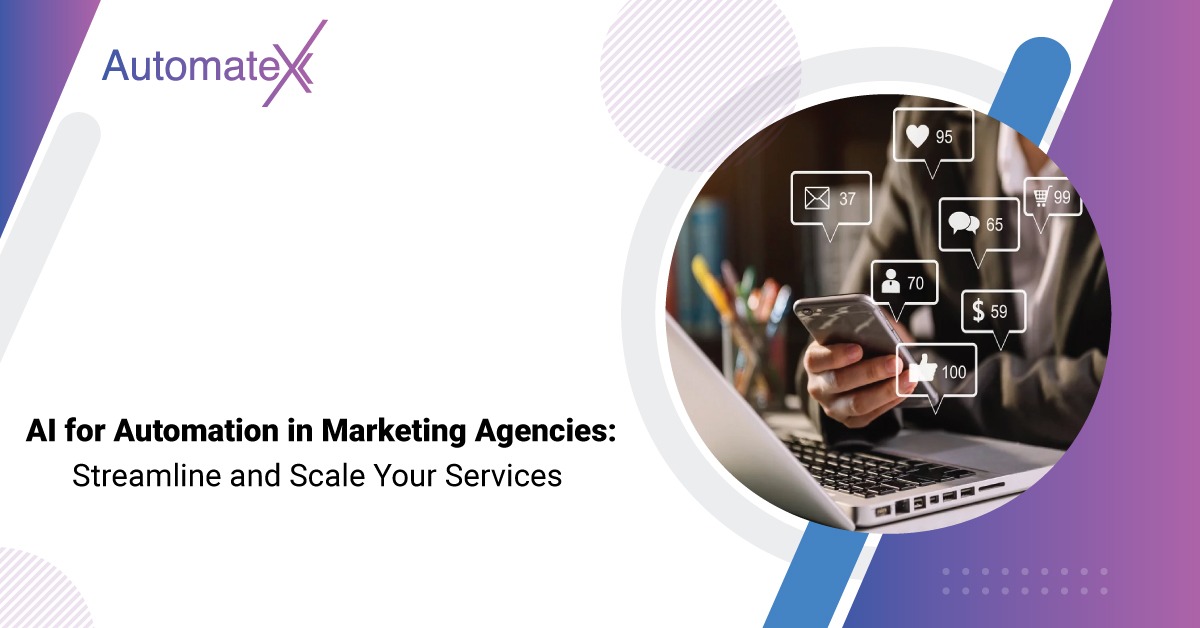In today’s rapidly evolving healthcare landscape, efficiency is more crucial than ever. With the increasing demand for quality patient care, healthcare providers are constantly seeking ways to streamline their operations and reduce administrative burdens. Enter AI and automation: game-changers in the quest for operational excellence. Discover how AI reduces administrative tasks in healthcare, allowing providers to focus more on patient care and less on paperwork.
Understanding AI for Automation in Healthcare
Artificial Intelligence (AI) is revolutionizing various sectors, with healthcare being one of the most transformative. AI for automation is a broad field that encompasses numerous applications aimed at enhancing efficiency and accuracy. By integrating AI into healthcare systems, providers can significantly reduce the time spent on administrative tasks, thus improving patient outcomes.
What is AI-Powered Automation?
AI-powered automation involves using artificial intelligence to perform tasks that were traditionally done manually. In healthcare, this means automating routine administrative tasks such as scheduling, data entry, and patient follow-ups. This frees up valuable time for healthcare professionals to focus on direct patient care.
Benefits of AI Automation in Healthcare
The integration of AI in healthcare comes with a myriad of benefits. Here’s a closer look at how these technologies can transform the industry:
1. Enhanced Efficiency and Accuracy
AI systems can handle repetitive tasks with remarkable speed and precision. For instance, AI-driven workflow automation can manage patient scheduling, billing, and claims processing without errors, reducing administrative overhead and increasing accuracy.
2. Improved Patient Care
By automating routine tasks, healthcare providers can spend more time interacting with patients and addressing their needs. This shift from administrative work to patient-focused care improves the overall quality of healthcare services.
3. Streamlined Operations
AI in business automation helps streamline various operational aspects of healthcare facilities. From managing patient records to processing insurance claims, AI systems ensure that operations run smoothly and efficiently.
AI Applications in Healthcare Automation
AI offers several applications that are particularly beneficial in the healthcare sector. These include:
1. AI Chatbots and Voice Agents
AI chatbots and voice agents are revolutionizing patient interactions. They handle appointment scheduling, answer patient queries, and provide personalized health information, all of which contribute to a smoother patient experience.
2. AI-Powered Digital Marketing
For healthcare providers, AI-powered digital marketing tools help in targeted outreach and patient engagement. These tools analyze patient data to create personalized marketing campaigns, enhancing patient acquisition and retention.
3. Intelligent Automation Platforms
Intelligent automation platforms combine AI with Robotic Process Automation (RPA) to handle complex tasks. In healthcare, these platforms can automate the processing of patient records, insurance claims, and other administrative tasks, leading to increased efficiency.
4. AI Business Consultancy
AI business consultancy services provide tailored solutions for healthcare providers to integrate AI into their operations effectively. These services help in identifying areas for automation and implementing AI-driven solutions that align with the organization’s goals.
Case Studies: AI Success in Healthcare
Several healthcare organizations have successfully implemented AI-driven solutions to enhance their operations. Here are a few notable examples:
1. Streamlining Patient Records at XYZ Hospital
XYZ Hospital integrated AI-based automation systems to manage patient records, resulting in a 30% reduction in administrative workload. This allowed staff to focus more on patient care and less on paperwork.
2. Enhancing Patient Engagement with AI Chatbots
ABC Clinic deployed AI chatbots to handle patient inquiries and appointment scheduling. This initiative reduced the clinic’s call volume by 40%, improving overall patient satisfaction.
Challenges and Considerations
While AI offers numerous advantages, there are challenges to consider:
1. Data Security and Privacy
Handling sensitive patient data requires robust security measures. Ensuring compliance with regulations such as HIPAA is crucial when implementing AI solutions in healthcare.
2. Integration with Existing Systems
Integrating AI tools with existing healthcare systems can be complex. It’s essential to work with experienced AI consultants to ensure seamless integration and minimal disruption.
Future Trends in AI and Automation for Healthcare
The future of AI in healthcare looks promising. Here are some trends to watch:
1. Increased Personalization
AI will enable even greater personalization of patient care, with advanced algorithms analyzing individual patient data to provide tailored treatment plans.
2. Enhanced Predictive Analytics
AI-driven predictive analytics will play a significant role in anticipating patient needs and improving preventive care strategies.
3. Expansion of AI in Telemedicine
As telemedicine continues to grow, AI will enhance remote consultations through advanced diagnostic tools and virtual assistants.
Conclusion
AI and automation are transforming the healthcare industry, offering numerous benefits such as enhanced efficiency, improved patient care, and streamlined operations. By leveraging AI-powered solutions, healthcare providers can reduce administrative tasks, allowing them to focus more on delivering high-quality care. Embrace the future of healthcare with AI and automation to stay ahead in a competitive landscape.
FAQs
- How does AI improve efficiency in healthcare? AI improves efficiency by automating routine tasks such as scheduling, billing, and patient follow-ups, allowing healthcare providers to focus more on patient care.
- What are AI chatbots and how are they used in healthcare? AI chatbots are automated systems that handle tasks such as appointment scheduling and answering patient queries, enhancing patient engagement and reducing administrative workload.
- What is AI-powered digital marketing in healthcare? AI-powered digital marketing uses data analysis to create personalized marketing campaigns, improving patient acquisition and retention.
- What challenges are associated with implementing AI in healthcare? Challenges include ensuring data security and privacy, as well as integrating AI tools with existing healthcare systems.
- What are the future trends in AI for healthcare? Future trends include increased personalization of patient care, enhanced predictive analytics, and the expansion of AI in telemedicine.
Explore More About Our AI Solutions:
- Learn More About Automatex
- About Us and Our Mission
- Our Range of Services
- Contact Us for Tailored Solutions
Discover how Automatex can transform your healthcare operations with cutting-edge AI solutions.



